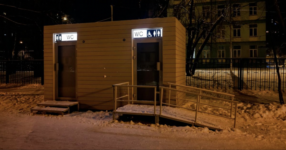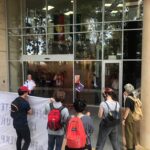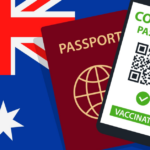Is It a Crime to Have Sexual Intercourse in a Public Place?

The atmosphere is heating up in Sydney, as our nation’s most populated city gets ready for World Pride 2023, an internationally recognised event celebrating the LGBTQ community which will run from 17 February until 5 March.
The event will showcase concerts featuring ‘Star-Studded Line-Ups’, vibrant art displays, dramatic and thought-provoking theatre productions and, on the more serious side, conferences to raise awareness about issues that affect LGBTQ communities across the nation and, indeed, around the global.
Along with the festivities, it is anticipated that areas known as ‘beats’ where adults meet up for consensual sexual intercourse will be getting a working, with police likely to ruin the party by descending upon the same areas to arrest participants.
So, perhaps it’s timely to take a look at laws which may impact on those having sex in public places, and help ensure a fun night doesn’t turn into a criminal record.
Police crackdowns
Beats, also known as cruising spots, have been part of LGBTQ+ culture since the early days of liberation.
As stated, a beat is a public place where people (usually men) gather for consensual sexual activity, typically at a park or other secluded area. Men attend beats either because they wish to keep their sexuality private or to enjoy the thrill attached to anonymous sex in an open location.
Back when buggery laws were still on the books, NSW police had a notorious reputation for utilising entrapment techniques to arrest and charge gay and bisexual men who went to beats.
Retired school teacher, Leslie Angus Peterkin, recently told the Special Commission of Inquiry into LGBTIQ hate crimes about his experience being entrapped by a police officer in a Sydney public toilet in 1956.
“I was accused of soliciting for sex in a public place and was questioned extensively about my name, personal details and motives” he said to the Inquiry. “I was totally gripped with fear and worry about what this effect this charge would have on my career and standing in the community”.
The Inquiry further found that the policing of beats had fuelled to perceptions that NSW police were either indifferent or supportive of the violent attacks against LGBTQ+ people at beats – violence which surged in the 80s and 90s as a result stigma around the HIV epidemic.
Since that time, NSW police have attempted to address past wrongs. Specialist liaison officers now exist to assist in response to incidents of homophobic and transphobic attacks, and there is a degree of tolerance when it comes to public cruising and beasts.
However, laws which criminalise public sex remain on the books.
Does having sexual intercourse in a public place amount to a crime?
Having sexual intercourse in a public place can amount to the criminal offence of ‘indecent exposure’.
This offence is contained in section 5 of the Summary Offences Act 1988 (NSW) and carries a maximum penalty of 6 months in prison and/or a fine equivalent to 10 penalty units.
One penalty unit is currently $110 for a criminal offence contained in New South Wales legislation, which means the maximum fine is $1,100.
To establish the offence of indecent exposure, the prosecution must prove beyond reasonable doubt that:
- You were in or within view of a public place or school,
- You obscenely exposed yourself, and
- You did so wilfully.
What is a ‘public place’?
A “public place” is defined extremely broadly as any area “that is open to the public, or is used by the public whether or not on payment of money or other consideration, whether or not the place or part is ordinarily so open or used and whether or not the public to whom it is open consists only of a limited class of persons”.
This includes parks, beaches, public toilets as well as privately owned areas accessible to the public such as pubs, clubs, restaurants, cinemas, theatres, shopping centres and shops.
The offence can be established whether or not somebody else sees you, as long as the exposure is “in or within view” of a public place or school.
What counts as ‘obscene’?
Exposure is “obscene” if it likely to offend the standards of decency of the community and includes public sex.
Sex-on-premises venues
Given the risks of criminal penalty associated with public sex, a safer alternative is to attend one of the many gay saunas or sex on premises venues operating in Sydney during World Pride.
Sex on premises venues are permitted by the City of Sydney to provide a legal and safe space for gay and bisexual men to meet and have sex. All sex on premises venues in Sydney have signed up to a code of practice which outlines minimum requirements for:
- Condom and lube distribution and access,
- Lighting at the venues,
- Drug and alcohol awareness and the provision of safe injecting disposal equipment,
- Sexual health information and education resources,
- Staff training and vaccinations, and
- Cleaning.
Entry into a sex on premises venues requires the payment of a fee and some venues will scan your identification for security purposes.
Wishing everyone a happy World Pride, be safe and look out for each other!







